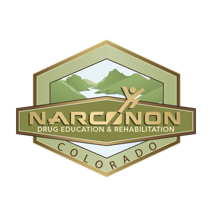The Importance of Boundaries in Addiction Recovery

In order to live a life of sobriety after living a life of addiction, a person will need to make several changes to the way they live their life. An especially important change that will need to be made is the ability to set up and maintain healthy boundaries.
Boundaries are rules that we establish for ourselves which allow us to develop healthy relationships with others and with ourselves. This is something that will need to be applied to each aspect of a person’s life. Below are some examples of the different areas that a person in addiction recovery will need to address.
1. Boundaries with family.
Setting up boundaries with family members is especially important because a person’s family is usually an influential aspect of their lives. If you have a loved one that drinks heavily or uses drugs then it will be important to have a conversation with them about your own recovery. Let the person know that you would still like to have them be a part of your life but that you cannot be around them while they are drinking or using.
2. Boundaries with friends.
This is another area where it is important to establish firm boundaries. You can save yourself from a lot of uncomfortable situations by letting your friends know that they cannot be around you while they are drinking or using drugs. If they are not willing to hang out with you without doing either of those things then they are probably not the type of friend you would want to have in your life. At that point, it would be a good idea to reevaluate the relationship and decide whether or not this is a person you still want to spend time with or if it is time to move on.
3. Boundaries with social activities.
This is an especially important area to address when a person is new to recovery. It is not a good idea for someone who is newly sober to go to social settings where drugs and alcohol are being used. In all, it’s not usually a good idea for anyone in recovery to go to certain types of events, but over time, it becomes easier to be in certain social settings, such as a restaurant, where other people are drinking without it causing a person to feel uncomfortable and anxious. If a person has recently quit drinking, then it would not be a wise decision to go out to a bar with friends—even if the only intention were to be a designated driver or drink non-alcoholic drinks. If you want to stay sober it is important to learn when to say no. If a person is really your friend then they should understand.
4. Boundaries with work.
While it is good to stay busy and productive while in recovery it is also important to maintain a balance. If a person is working too much and spreading themselves too thin, they will experience more stress and may find it more difficult to maintain their sobriety. This is why it is a good idea to work on creating a good balance between one’s personal and professional life.
5. Boundaries with a significant other.
If your significant other wants you to maintain your sobriety they should not drink or use around you. Let them know that you will need their support and encouragement when it comes to living a sober lifestyle. It is a good idea to discuss what the expectations are of one another when it comes to shared responsibilities and lifestyle choices.

6. Boundaries with oneself.
Most importantly, it is essential that a person in recovery get to know who they really are without the use of drugs or alcohol. It is also a good idea to figure out and establish a set of personal values and standards that need to be maintained at all times in order to live a life of sobriety.
Four key things to remember when it comes to healthy boundaries in addiction recovery are:
1. Know your limits.
2. Do not allow drugs or alcohol into your home.
3. Do not put yourself in compromising situations.
4. Establish and maintain healthy habits and routines.


